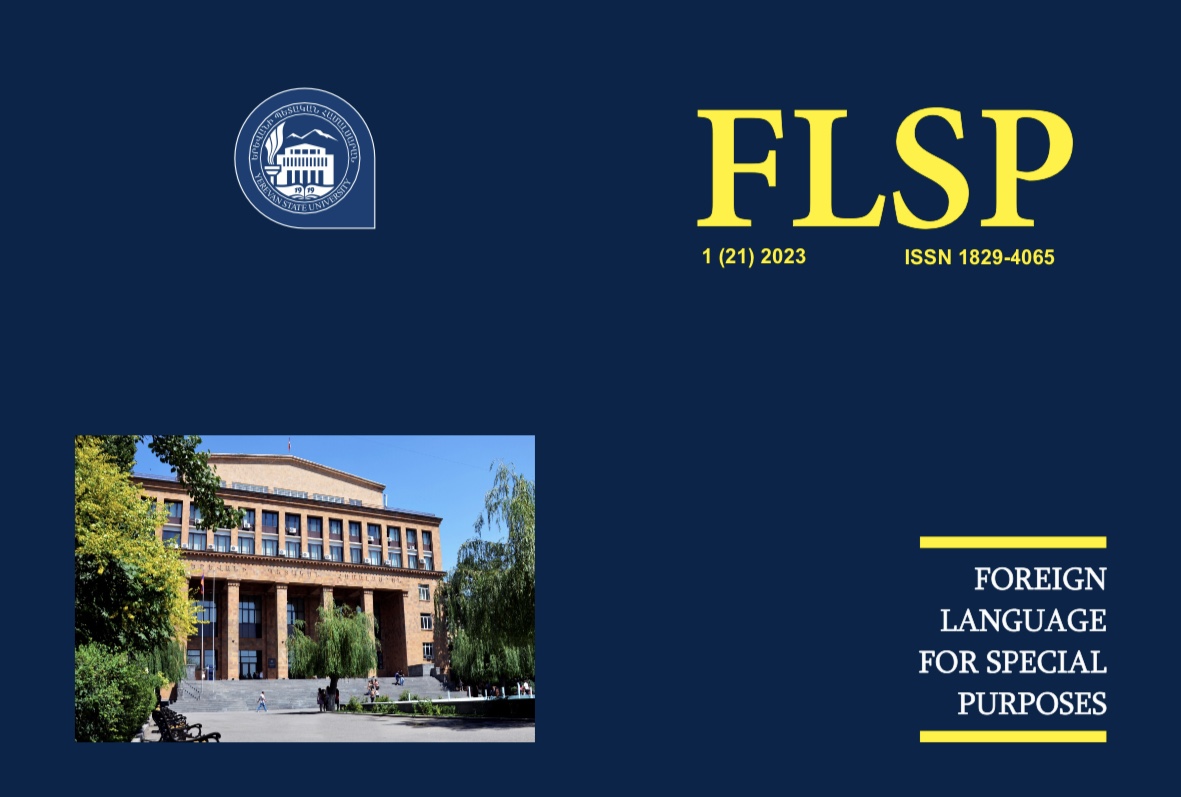PRIMARY AND SECONDARY PREPOSITIONS OF THE GENITIVE CASE IN GERMAN-LANGUAGE LEGAL DISCOURSE
DOI:
https://doi.org/10.46991/flsp.v21i1.10660Keywords:
German-language legal discourse, primary and secondary prepositions of the German language, , functional meaning of prepositionsAbstract
This paper is devoted to the study of semantics and functioning of primary and secondary prepositions of the genitive case in German-language legal discourse. The authors attempt to systematise the prepositions of the genitive case on which basis of their semantics and functional meaning in legal texts, and also trace certain regularities of the transition of full-meaning parts of speech, including prepositional groups of nouns, into service parts of speech, namely into secondary prepositions of the genitive case. These semantic-syntactic transformations are possible due to the peculiarities of the linguistic system of the German language, namely, due to the presence of structural-semantic models on the basis of which the serial formation of secondary prepositions of the genitive case in German takes place. Semantic transformation in the formation of secondary prepositions from fully meaningful parts of speech is of great importance.
References
Thormann I., Hausbrandt J. (2016) Rechtssprache klar und verständlich für Dolmetscher, Übersetzer, Germanisten und andere Nichtjuristen. Essen: BDÜ Fachverlag, 459 S.
Helbig G., Buscha J. (1996) Deutsche Grammatik. Ein Handbuch für den Ausländerunterricht. Leipzig: Langenscheidt, 736 S.
Тихонова И. А., Алексеева М. Г. (2016) К вопросу о классификации предлогов // Общие и частные вопросы языкознания: сборник научных статей по материалам VIII международной научно-практической конференции. Чебоксары: Чувашский государственный педагогический университет им. И. Я. Яковлева, С. 277-284
Брискина Е. В. (2017) Лексико-семантические и синтаксические особенности предлогов и предложных групп в современном немецком языке // Филологические науки. Вопросы теории и практики. № 11 (77): в 3-х ч. Ч. 1. С. 64-70.
Gesetze im Internet [Электронный ресурс]. (2023) URL: https://www.gesetze-im-internet.de/(дата обращения: 13.07.2023).
Digitales Wörterbuch der deutschen Sprache [Электронный ресурс]. (2023) URL: https://www.dwds.de/(дата обращения: 13.07.2023).
Downloads
Published
Issue
Section
License
Copyright (c) 2023 Ekaterina Savankova, Мария Степанова

This work is licensed under a Creative Commons Attribution-NonCommercial 4.0 International License.
Creative Commons Attribution-Non-Commercial (CC BY-NC). CC BY-NC allows users to copy and distribute the article, provided this is not done for commercial purposes. The users may adapt – remix, transform, and build upon the material giving appropriate credit, providing a link to the license. The full details of the license are available at https://creativecommons.org/licenses/by-nc/4.0/

